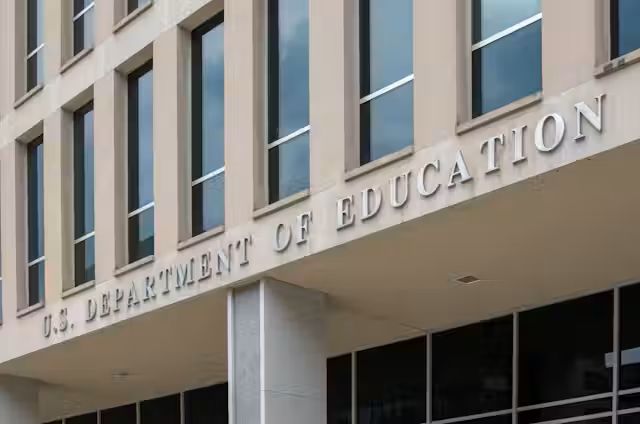Last Updated on March 15, 2025 by Bertrand Clarke
The U.S. Department of Education has launched investigations into more than 50 universities over allegations of racial discrimination, a move that aligns with President Donald Trump’s broader initiative to dismantle diversity, equity, and inclusion (DEI) programs that officials argue disadvantage white and Asian American students.
Announced on Friday, these investigations come on the heels of a directive issued last month warning educational institutions that they risk losing federal funding if they employ race-based considerations in admissions, scholarships, or other student-related programs.
Crackdown on Race-Based Initiatives
Education Secretary Linda McMahon reinforced the administration’s stance, stating, “Students must be assessed according to merit and accomplishment, not prejudged by the color of their skin. We will not yield on this commitment.”
Many of the inquiries target universities with affiliations to the PhD Project, a nonprofit organization that aims to increase the number of business professionals from underrepresented backgrounds. The Department of Education contends that by restricting eligibility based on race, participating universities are engaging in exclusionary practices.
Notable institutions under investigation for their association with the PhD Project include major public universities such as Arizona State University, Ohio State University, and Rutgers University, as well as elite private schools like Yale, Cornell, Duke, and the Massachusetts Institute of Technology (MIT).
In response to the scrutiny, the PhD Project issued a statement emphasizing its mission to cultivate a diverse talent pipeline for the business world. The organization highlighted recent policy changes to broaden membership eligibility, asserting, “This year, we have opened our membership application to anyone who shares that vision.”
Some universities have already distanced themselves from the program. Arizona State University confirmed that its business school had ceased financial support for the PhD Project this year and, as of February 20, had advised faculty against participating in the nonprofit’s annual conference.
Ohio State University also addressed the concerns, stating, “The university does not discriminate on the basis of race, ethnicity, or any other protected class, and our PhD programs are open to all qualified applicants.”
Additional Investigations Into Race-Based Scholarships
Beyond partnerships with the PhD Project, the Department of Education is investigating six additional institutions over alleged violations tied to race-based scholarships. These schools include Grand Valley State University, Ithaca College, the New England College of Optometry, the University of Alabama, the University of South Florida, and the University of Oklahoma at Tulsa.
Initially, the department mistakenly listed the University of Tulsa as under investigation before correcting the error.
Furthermore, the University of Minnesota is facing an inquiry into claims that it operates a program segregating students based on race. While details of this specific case remain limited, the investigation underscores the federal government’s intensified scrutiny of race-conscious policies in education.
Legal and Political Backlash
The investigations are an extension of a Supreme Court decision from 2023 that struck down affirmative action in college admissions at Harvard University and the University of North Carolina. While that ruling focused specifically on admissions, the Trump administration is interpreting it more broadly, seeking to eliminate race-based considerations across all educational programs, from K-12 schools to higher education institutions.
A February 14 memorandum from Craig Trainor, the acting assistant secretary for civil rights at the Education Department, signaled a significant escalation in this approach. Trainor criticized existing DEI efforts, arguing that they have introduced “racial stereotypes and explicit race-consciousness into everyday training, programming, and discipline.”
This aggressive push to reshape policies is facing legal challenges. The two largest teachers’ unions in the country have filed federal lawsuits against the directive, claiming that it is too vague and infringes on educators’ free speech rights.
A Turning Point in Higher Education
The unfolding investigations mark a pivotal moment in the national debate over DEI programs in education. Proponents of these programs argue that they are crucial for ensuring diverse representation and addressing systemic inequities in academia and beyond. Critics, including members of the Trump administration, contend that such initiatives amount to racial favoritism and undermine the principle of equal opportunity.
As the legal battles intensify, the outcome of these investigations could have lasting implications for the future of race-conscious policies in higher education. Universities across the country are now faced with the challenge of navigating shifting federal guidelines while maintaining their commitments to fostering diverse and inclusive learning environments.










